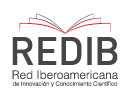Fans and fanfictions, reading, appropriation and production, analyzed from the perspective of reception theory: the case of Game of Thrones and A Song of Ice and Fire
DOI:
https://doi.org/10.21142/DES-1301-2021-0003Keywords:
fan fiction, fandom, Reception Aesthetic Theory, participatory culture, game of thronesAbstract
This research pretends to analyze the reception of a literary and audiovisual work inside an online fan community and the creation of fan fiction literature by the members of this community, as well as the relationship with the canonical author. Data was collected through the content analysis of the texts written by the fans and the use of a questionnaire fulfilled by the same group. Thanks to this information, and with the help of Reception Theory concepts, it was proved how fans become an active audience that produce new content from the appropriation and resignification of the original text. In addition, it became evident the way they consume the canonical story and how they interact with it and its authors.
Downloads
References
Bajtín, M. (1982). Estética de la creación verbal. Ciudad de México: Siglo XXI Editores.
Black, R. W. (2007). Fanfiction writing and the construction of space. E- Learning, 4(4). Recuperado de http://dx.doi.org/10.2304/elea.2007.4.4.384
Cumberland, S. (2003). Private uses of cyberspace: Women, desire, and fan culture. En D. Thorburn y H. Jenkins (Eds.), Rethinking media change. The aesthetics of transformation (pp. 261-279). Cambridge: MIT Press.
De Certeau, M. (1980). The practice of everyday life. Los Angeles: University of California Press.
Eco, U. (1996). Seis paseos por los bosques narrativos. Harvard University, Norton Lectures 1992-1993. Barcelona: Editorial Lumen.
Fanfiction.net. (s. f.). Game of Thrones FanFiction Archive. Recuperado de https://www.fanfiction.net/tv/Game-of-Thrones/?&srt=1&lan=2&r=10&le n=1&t=15&s=2
Fanfiction.net. (s. f.). A Song of Ice and Fire FanFiction Archive. Recuperado de https://www.fanfiction.net/book/A-song-of-Ice-and-Fire/?&srt=1&lan
=2&r=10&len=1&s=2&t=15&p=1
Fanfiction.net. (s. f.). Séptima temporada – Foro Alas Negras, Palabras Ne- gras. [Publicación en foro online]. Recuperado de https://www.fanfiction. net/topic/127288/164654238/1/S%C3%A9ptima-temporada
Fathallah, J. (2015). Statements and silence: Fanfic paratexts for ASOIAF/ Game of Thrones. Continuum, 30(1), pp. 1-14. Recuperado de https://www. researchgate.net/publication/283671034_Statements_and_silence_Fan- fic_paratexts_for_ASOIAFGame_of_Thrones
Fish, S. (1980). Is there a text in this class? The authority of interpretive com- munities. Cambridge: Harvard UP.
Glare, P. G. W. (1968). Oxford Latin Dictionary. Londres: Oxford University Press.
Gray, J. (2010). Show sold separately. Promos, spoilers and other media para- texts. Nueva York: New York University Press.
Gray, J. y Lotz, A. D. (2012). Television studies. Cambridge: Polity Press.
Guanipa, L. y Angulo, M. (2020). La identidad social en la educación: hacia una participación ciudadana. Desde el Sur, 12(1), pp. 155-166
Herzog, A. (2014). We, the fans. Power in the democratic archive of fanfic- tion. Disertación inaugural del doctorado de la Facultad de Lengua, Lite- ratura y Estudios Culturales de la Universidad de Regensburg, Alemania.
Hibberd, J. (15 de julio de 2019). George R. R. Martin: Game of Thrones fan reactions won’t change my books. Entertainment Weekly. Recuperado de https://ew.com/tv/2019/07/15/george-rr-martin-game-thrones-fan- reactions/
Ingarden, R. (1998). La obra de arte literaria. Ciudad de México: Taurus.
Iser, W. (1974). The implied reader: Patterns of communication in prose fiction from Bunyan to Beckett. Baltimore: Johns Hopkins University Press.
Jauss, H. R. (2000). La historia de la literatura como provocación. Barcelona: Península.
Jenkins, H. (1992). Piratas de textos: fans, cultura participativa y televisión. Barcelona: Paidós.
Jenkins, H. (2006). Fans, blogueros y videojuegos. La cultura de la colabora- ción. Barcelona: Paidós.
Jenkins, H., Ford, S. y Green, J. (2015). Cultura transmedia, la creación de contenido y valor en una cultura en red. Barcelona: Gedisa.
Lacalle, C. (2001). El espectador televisivo: los programas de entretenimiento.
Barcelona: Gedisa.
Lévy, P. (1994). L’Intelligence collective. Pour une anthropologie du cyberes- pace. Paris: La Découverte.
Martin, G. R. R. (7 de mayo de 2010). Someone is angry on the internet. Not a blog. Recuperado de http://grrm.livejournal.com/151914.html
Martos García, A. E. (2009). Sagas y fan fiction, escritura literaria y cultura juvenil. Lenguaje y Textos, 29, pp. 167-175.
Miller, J. (2016). Uses and gratifications of fanart: Understanding fans mo- tivations through affirmational and transformational fandom. Annenberg: University of Southern California.
Morán Rodríguez, C. (2007). Li(nk)teratura de kiosko cibernético: Fanfic- tions en la red. Cuadernos de Literatura, 12(23), pp. 27-53. Recuperado de http://revistas.javeriana.edu.co/index.php/index/search/search
Morán Rodríguez, C. (2016). Fanfiction y novela actual (notas para meterse en un jardín con Ortega al fondo). En V. Béguelin-Argimón y G. Cordone (Eds.) Manifestaciones intermediales de la literatura hispánica en el siglo XXI (pp. 311-327). Madrid: Visor.
Rheingold, H. (1993). The virtual community. Cambridge: MIT University Press.
Ricoeur, P. (1985). Tiempo y narración. Volumen III. El tiempo narrado. Ciu- dad de México: Siglo XXI Editores.
Thomas, B. (2007). Canons and fanons: Literary fanfictions online. Digital Dichtung, 37. Recuperado de http://www.dichtung-digital.org/2007/Tho- mas/thomas.htm
Toykin, F. (2020). Dinámicas e identificación grupal en gamers de Lima, el caso de competitividad en el videojuego League of Legends. Desde el Sur, 12(2), pp. 573-597.
Downloads
Published
Issue
Section
License

Esta obra está bajo una licencia http://creativecommons.org/licenses/by-nc-sa/4.0/



















